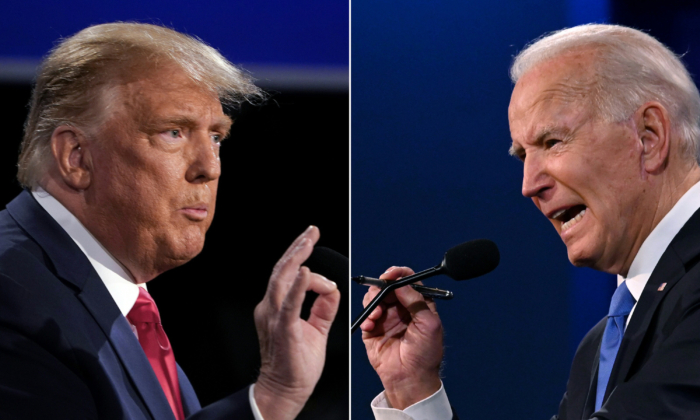The two major candidates have settled their differences after weeks of negotiations, but the outcome remains uncertain as to who will gain the most advantage. The debate over the debate rules has a long history, dating back to the first televised debates in 1960. Both former President Trump and President Biden have engaged in this back-and-forth dance before, with each trying to secure favorable terms for the upcoming debates. This year, there are new changes in store, with experts weighing in on the likely winners and losers. The first debate is set for June 27, the earliest date ever chosen for such an event. This timing is seen as potentially benefiting President Biden, as it could inject new momentum into his campaign. Independent candidate Robert F. Kennedy Jr. faces challenges in meeting participation criteria set by CNN. The host for the debates will be major television networks, with CNN and ABC hosting the first and second debates, respectively. The absence of a live audience and the use of muted microphones aim to prevent disruptions and cross-talking during the debates. Both candidates are expected to approach the debates differently this time, with the momentum potentially shifting in unexpected ways. President Biden is now the incumbent, with President Trump as the challenger. President Trump faced COVID-19 during the last campaign, while President Biden is currently dealing with inflation, wars in Ukraine and Gaza, campus protests, border chaos, and low approval ratings. According to J. Edwin Benton, a political science professor, inflation is the biggest challenge for President Biden as the economy is a major voter concern.
President Biden will likely have to defend his economic record while attacking President Trump during the debate. President Trump may appeal to independent voters by highlighting economic issues and presenting himself as a positive alternative. The Biden campaign aims to portray President Trump as out of control, setting the stage for a debate on key issues like abortion, tax cuts, and healthcare. President Trump is expected to focus on illegal immigration, crime, and the economy as core campaign issues.
Debates have become less influential in recent years, with fewer voters citing them as helpful in making their decision. However, a significant number of voters are likely to watch the upcoming debate and may change their minds about the candidates. The debate will be available on one network and online platforms, potentially reaching a large audience. Political analysts anticipate a display of confirmation bias and motivated reasoning during the debate. Please rephrase this sentence.
Source link





